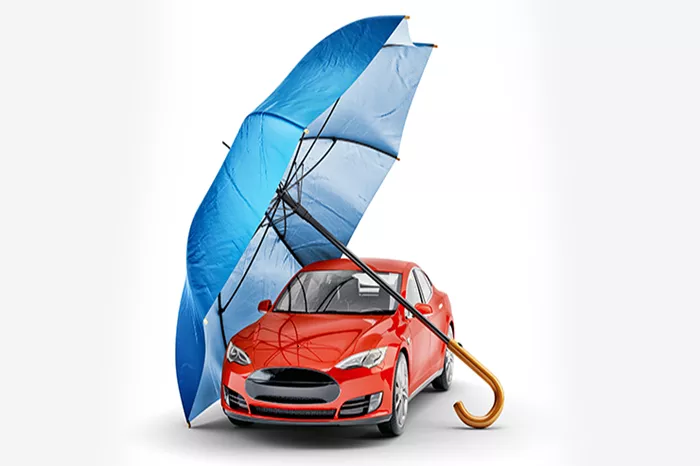When it comes to car insurance, one of the most critical decisions you’ll face as a vehicle owner is choosing between third-party insurance and comprehensive insurance. Understanding the differences between these two types of coverage is essential for making an informed decision that best suits your needs. In this article, we will explore the definitions, benefits, drawbacks, costs, and ideal sc. Which Insurance Is Best for Car Third Party or Comprehensiveenarios for both third-party and comprehensive car insurance to help you determine which option is best for you.
Understanding Car Insurance Types
What is Third-Party Insurance
Third-party insurance is the most basic form of car insurance and is often legally required in many jurisdictions. This type of insurance provides coverage for damages and injuries that you may cause to other people and their property while driving your vehicle. However, it does not cover damages to your own vehicle or injuries you may sustain in an accident.
Key Features of Third-Party Insurance
Liability Coverage: It covers the costs associated with injuries to other parties and damages to their property if you are at fault in an accident.
Legal Requirement: In many regions, having at least third-party insurance is mandatory for vehicle registration and operation.
Cost-Effective: Generally, third-party insurance is less expensive than comprehensive insurance, making it an attractive option for budget-conscious drivers.
What is Comprehensive Insurance
Comprehensive insurance, on the other hand, offers a broader range of coverage. It not only includes third-party liability coverage but also protects your own vehicle against various risks, including theft, vandalism, natural disasters, and accidents, regardless of fault.
Key Features of Comprehensive Insurance
All-Inclusive Coverage: It covers damages to your vehicle, whether caused by an accident, theft, fire, or natural disasters.
Higher Premiums: Comprehensive insurance typically comes with a higher premium compared to third-party insurance due to the extensive coverage it provides.
Peace of Mind: This type of insurance offers greater peace of mind, knowing that you are protected against a wide array of potential risks.
Comparing Third-Party and Comprehensive Insurance
To help you decide which insurance type is best for you, let’s compare third-party and comprehensive insurance across several important factors.
Coverage Scope
Third-Party Insurance
Covers: Injuries to other drivers, passengers, pedestrians, and property damage caused by you.
Does Not Cover: Your own vehicle’s damages, personal injuries, or damages caused by natural disasters.
Comprehensive Insurance
Covers: Injuries to other parties, damages to your vehicle in an accident (regardless of fault), theft, vandalism, fire, and natural disasters.
Does Not Cover: Any damages or injuries that occur while driving without a valid license or under the influence of drugs or alcohol.
Cost
Third-Party Insurance
Premiums: Generally lower than comprehensive insurance, making it more affordable for many drivers.
Deductibles: Typically, third-party insurance does not involve deductibles, as it primarily covers liability.
Comprehensive Insurance
Premiums: Higher premiums due to the extensive coverage it provides.
Deductibles: Often includes deductibles that you must pay out of pocket before the insurance kicks in for claims related to your vehicle.
Ideal Scenarios for Each Type
When to Choose Third-Party Insurance
Older Vehicles: If you own an older vehicle that has a low market value, third-party insurance may be sufficient, as the cost of comprehensive coverage may not be justified.
Budget Constraints: If you are on a tight budget and need to meet legal requirements, third-party insurance can provide the necessary coverage at a lower cost.
Low-Risk Drivers: If you have a clean driving record and feel confident in your driving abilities, you may opt for third-party insurance.
When to Choose Comprehensive Insurance
New or High-Value Vehicles: If you own a new or high-value vehicle, comprehensive insurance is advisable to protect your investment.
Peace of Mind: If you want the peace of mind that comes with knowing you are covered against a wide range of risks, comprehensive insurance is the better option.
Frequent Drivers: If you drive frequently or in areas with high traffic or crime rates, comprehensive coverage can provide added protection.
Claims Process
Third-Party Insurance
Claims Process: The claims process for third-party insurance involves filing a claim with your insurer if you are at fault in an accident. Your insurer will then handle the claims process for the other party.
Timeframe: The timeframe for claims can vary, but it is generally straightforward as it involves assessing damages to the other party.
Comprehensive Insurance
Claims Process: If you need to file a claim for damages to your own vehicle, you will need to provide evidence of the incident, such as photos, police reports, and repair estimates.
Timeframe: The claims process may take longer due to the need for assessments and appraisals of the damages to your vehicle.
Factors to Consider When Choosing Between Third-Party and Comprehensive Insurance
Vehicle Age and Value
The age and value of your vehicle play a significant role in determining which type of insurance is best for you. For older cars with lower market values, third-party insurance may be sufficient. However, for newer or high-value vehicles, comprehensive insurance is advisable to protect your investment.
Driving Habits
Consider your driving habits and the risks associated with them. If you drive frequently in high-traffic areas or have a long commute, comprehensive insurance can provide added protection. Conversely, if you drive infrequently or in low-risk areas, third-party insurance may be adequate.
Budget
Your budget is a crucial factor in determining which insurance type to choose. Comprehensive insurance comes with higher premiums, so if you are on a tight budget, third-party insurance might be the more feasible option. However, make sure to weigh the potential risks of being underinsured.
Risk Tolerance
Your personal risk tolerance is another important consideration. If you prefer to take on more risk to save on insurance costs, third-party insurance may be suitable. However, if you want to minimize your financial exposure in the event of an accident or loss, comprehensive insurance is the better choice.
Legal Requirements
In many jurisdictions, third-party insurance is legally required. Ensure that you understand the minimum insurance requirements in your area before making a decision. If comprehensive insurance is not mandated, you may choose to go with third-party coverage if it meets your needs.
Pros and Cons of Third-Party Insurance
Pros
Affordability: Lower premiums compared to comprehensive insurance.
Simplicity: Easier to understand and manage, focusing primarily on liability coverage.
Legal Compliance: Meets the minimum insurance requirements in many areas.
Cons
Limited Coverage: Does not cover damages to your own vehicle or personal injuries.
Financial Risk: You may face significant out-of-pocket expenses in the event of an accident.
Pros and Cons of Comprehensive Insurance
Pros
Extensive Coverage: Covers a wide range of risks, including damages to your own vehicle and liability.
Peace of Mind: Provides greater security knowing you are protected against various potential losses.
Higher Resale Value Protection: Protects your investment in a new or high-value vehicle.
Cons
Higher Premiums: More expensive than third-party insurance, which may not fit every budget.
More Complex: The claims process can be more complicated due to the need for assessments and documentation.
See Also: What Does Split Limits Mean in Auto Insurance
Real-Life Scenarios: Choosing the Right Insurance
To further illustrate the decision-making process between third-party and comprehensive insurance, let’s explore a few real-life scenarios.
The New Car Owner
Profile: Sarah just purchased a brand-new sedan worth $30,000. She drives daily to work and lives in a suburban area with moderate traffic.
Recommendation: Sarah should consider comprehensive insurance. Given the value of her new car, comprehensive coverage will protect her investment against theft, vandalism, and accidents.
The College Student
Profile: Tom is a college student who drives a 10-year-old hatchback worth about $4,000. He only drives occasionally and primarily uses public transportation.
Recommendation: Tom may opt for third-party insurance. Since his car has a low market value, the cost of comprehensive coverage may not be justified.
The Frequent Commuter
Profile: Lisa has a three-year-old SUV worth $25,000. She commutes daily in heavy traffic and often travels long distances for work.
Recommendation: Comprehensive insurance is advisable for Lisa. Given her frequent driving in high-traffic areas, comprehensive coverage will provide peace of mind and protection against various risks.
The Budget-Conscious Driver
Profile: Mike drives a 15-year-old sedan worth $2,500. He has a tight budget and is looking for the most affordable insurance option.
Recommendation: Mike should consider third-party insurance. The low value of his vehicle makes comprehensive coverage unnecessary, and third-party insurance will meet his budgetary needs.
Conclusion
Choosing between third-party and comprehensive car insurance is a significant decision that depends on various factors, including the age and value of your vehicle, your driving habits, budget, and personal risk tolerance.
Third-party insurance offers a cost-effective solution that meets legal requirements but comes with limited coverage, leaving you financially vulnerable in the event of an accident. On the other hand, comprehensive insurance provides extensive coverage, protecting your vehicle against a wide range of risks, but at a higher cost.
Ultimately, the best choice for you will depend on your unique circumstances and priorities. By carefully evaluating your needs and considering the pros and cons of each type of insurance, you can make an informed decision that ensures you have the right coverage for your situation. Whether you opt for third-party or comprehensive insurance, being adequately insured is crucial for protecting yourself and your vehicle on the road.
Related Topics:






















